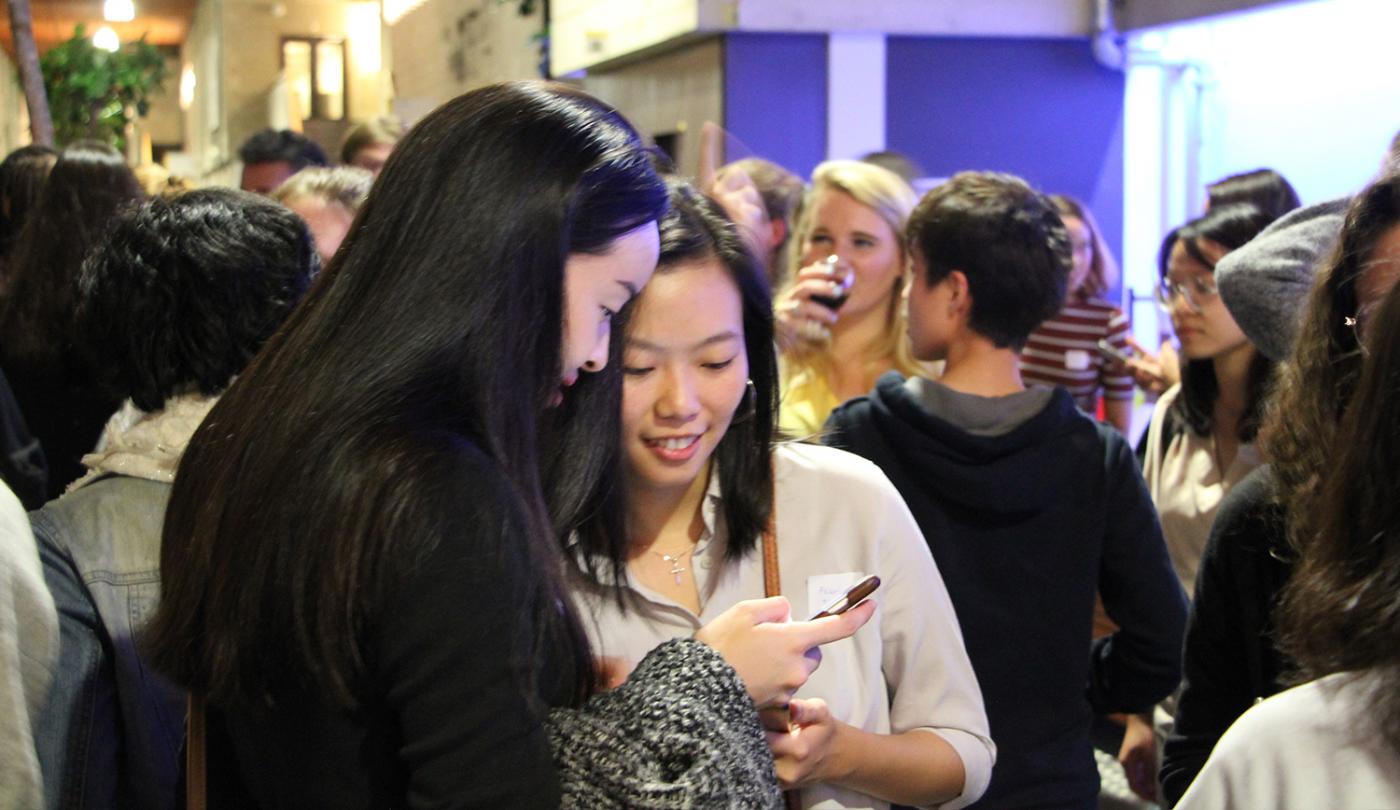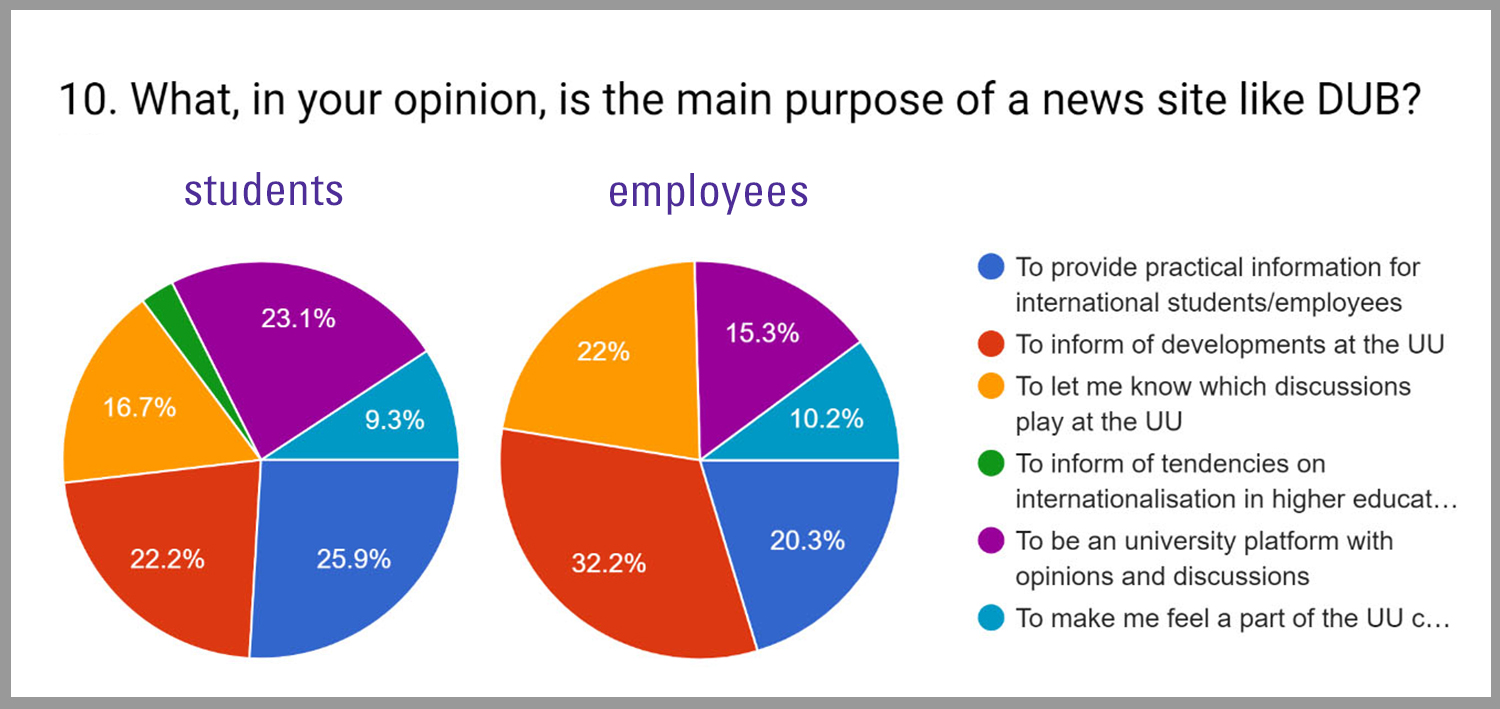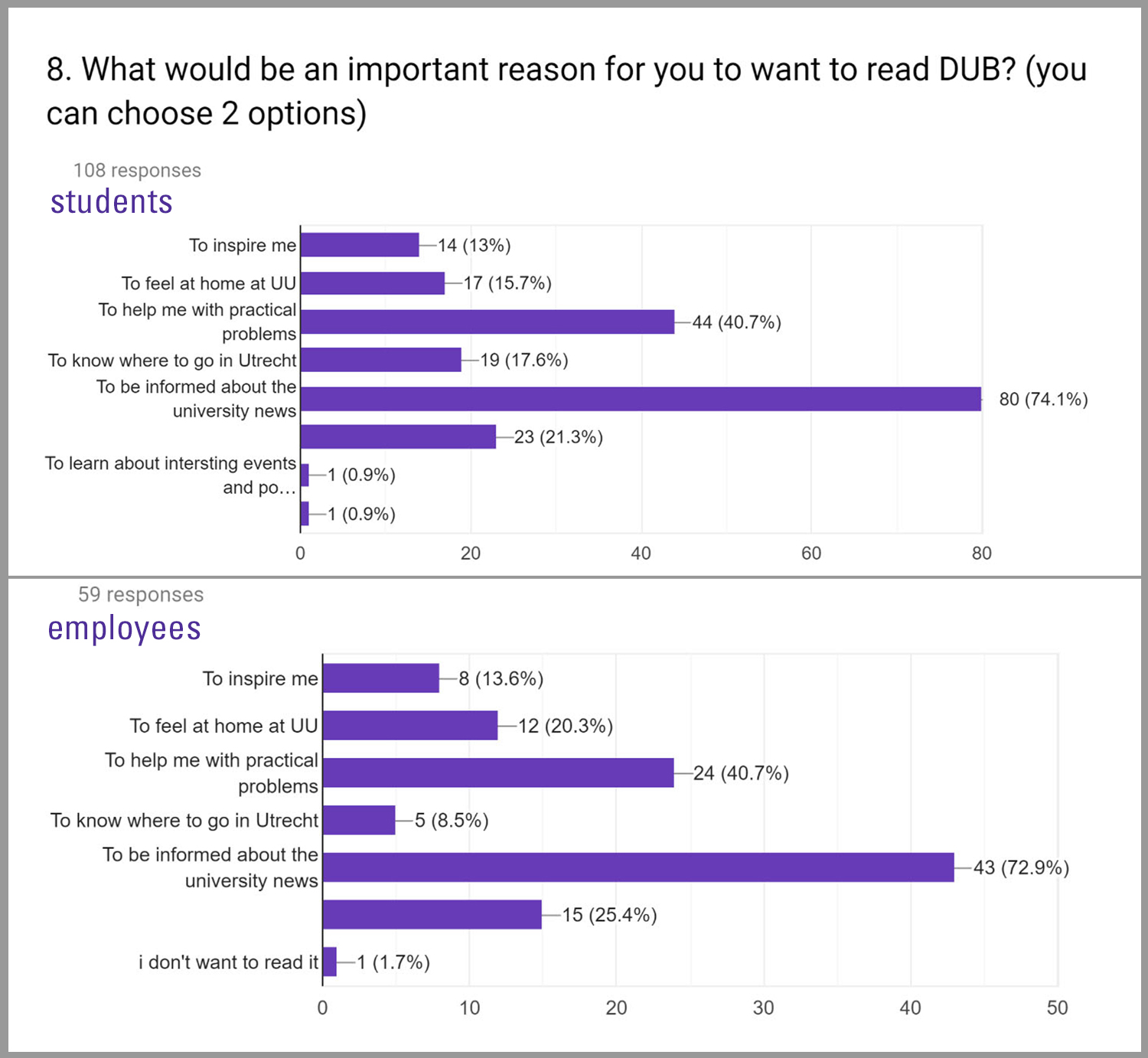Internationals want to read practical and critical stories on DUB

A recent study by Nuffic, the Dutch organisation for internationalisation in education, shows that more and more international students choose a study programme in the Netherlands. In Utrecht, 9.3 percent of all students are international. The share of international employees is around 15 percent, according to the university’s 2017 annual report. Do these international students and employees at Utrecht University feel a need for an independent news platform and if yes, what would they want to read about? On behalf of DUB, communications student Daniëlle van den Brink studied this subject for her graduation project at Utrecht University of Applied Sciences.
DUB would like to reach the internationals at Utrecht University with its opinion pieces, news articles and background stories. For that reason, DUB launched an English version of its website last year. Earlier this year, the website was joined by an English newsletter and an English Twitter account. Still, DUB would like to have more insights into what the international community wants in terms of news. On behalf of DUB, Daniëlle van den Brink analysed the articles on DUB’s English website, talked to international students and employees about their interests, and set up a questionnaire for this same group as well. She also studied the way other university magazines serve their international communities.
Independent news site
In total, 108 international students and 59 international employees filled out the questionnaire. Of these, 95 percent say they feel it’s important to have an independent news source – despite the fact that a medium like DUB, which is made by professional journalists and works independently even though it’s a part of the university, doesn’t exist in most countries. In most countries, comparable media are run entirely by students. The respondents say an important reason for having an independent news source is that they value freedom of speech, receiving unbiased news, and sharing critical opinions.
Students and employees say they feel it’s very difficult to find good, reliable information in the many newsletters the university and other organisations send them. In the eyes of the internationals, DUB could play a role in this.
For fun or for content
In the questionnaire, DUB asked students and employees what DUB’s main goal should be, and what they’d like to read about. The need for practical information is valued the highest. They also feel a need for a discussion platform, and would like to know what’s happening at university. Students name themes like housing (what is the university doing to battle the housing crisis?), socialisation between Dutch and international students (and why this doesn’t always go well), information about the city, and tips about activities happening in the city.
Employees mention themes like workloads, PhD candidates’ rights and duties, career options for internationals, and activities at De Uithof (lectures, for instance) as topics they’d like to read about.
The urgency to read DUB
Around 65 percent of international students know of DUB, while 74 percent of international employees are familiar with us. Most know DUB from the newsletter. Until last year, opening the newsletter was usually not something people did, because the whole thing was written in Dutch. It’s seen as an improvement that an English version of the newsletter was launched.
For many internationals, there’s not much urgency to read DUB. “I’m fairly busy, and I receive a lot of emails. DUB’s not exactly a priority,” several of the internationals interviewed say. On the other hand, there are also people who browse through the stories and click the interesting ones. “I like reading about how students and teachers interact. I also use DUB to learn some Dutch,” an Italian PostDoc says. “I like reading about funny stuff happening in student life. DUB has to be different from all those other UU newsletters,” a student says.

How do you reach internationals?
One of the questions from the study was how a university magazine can reach international students. Should you write articles meant especially for international students and employees? Or is it better to translate existing articles so they know what’s going on?
The study shows many internationals want both – they want to read about topics that focus especially on things relevant to internationals, but would also like to know about the things their colleagues might be talking about. There was also one remark from a student who said it’s ‘not fair that not everything’s translated. You’re not really a part of the group that way’.
Looking at the six analysed university magazines, only Erasmus magazine consistently provides Dutch and English versions of all its articles. All other media make choices, mostly looking at the topics most relevant to internationals.
Several university magazines have had discussions about the possibility of providing all their content in English. But in Rotterdam and Maastricht, they say research among their Dutch audience shows that would lead to Dutch readers disengaging. “Many students have to read a lot of English during their studies, and don’t want to read more English content in their spare time,” the study showed. In Rotterdam, students felt accessibility decreases if all articles are only published in English. In Delft, they do choose to publish mainly English articles, with every now and then an article in Dutch.
The language choice relates to the cost of translations. The more you translate, the more expensive it gets. There isn’t always budget to do this. Compared to other magazines, DUB’s translation budget is very limited.
Aside from the website and the newsletter, social media could also play a role in reaching internationals students and employees. The questionnaire shows that half of international students and 60 percent of international employees would like to follow DUB on social media, especially on Facebook and Instagram. Most participants in the study are as yet unfamiliar with the already existing social media channels DUB maintains.